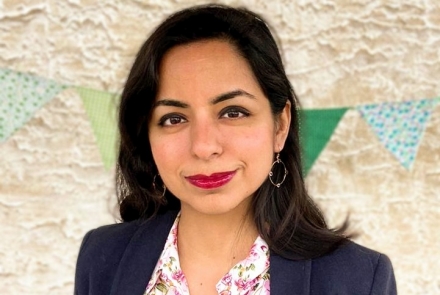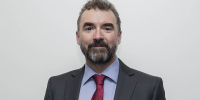
Exploring the role of experts in policymaking
Postdoctoral Fellow Anuradha Sajjanhar has recently joined the Crawford School community. She tells us about researching to trace the roots of influential political behavior, and the challenges of working from a distance.
Why did you choose to come to Crawford School?
I am so pleased to be a part of the vibrant community at Crawford School and at ANU. There are several reasons I chose to come to Crawford, but perhaps key to my decision is Crawford’s rich interdisciplinary and transnational scholarship on policy and governance. My research is fairly interdisciplinary, and substantively focuses on the agenda-setting power of policymaking organisations. Unlike in pure disciplinary departments I’ve encountered, scholars at Crawford engage with a mix of empirical, policy-relevant research as well associo-cultural and theoretical work. The community at Crawford also seems committed to combining rigorous academic research with key advisory roles and engagement in public debates. My research has made me acutely aware of the role that experts can play in shaping governance challenges, and I am particularly keen to be at a place like Crawford that combines and encourages both applied and academic policy-related research. I am thrilled to be working with Dr Andy Kennedy and look forward to engaging with the wider community - remotely, for now.
What are your main areas of research interest and how do they apply to the current context of COVID-19 and contemporary politics?
I mostly ask questions about the politics of policymaking and governance. My doctoral research examines how particular policy problems (and solutions) gain prominence in dominant political discourse and policy organisations. I am drawn to asking how notions of expertise change in moments of political and democratic transformation, and how discourse surrounding policy debates can shift to producing new kinds of “common sense”. In my doctoral dissertation, The New Experts: Politics (and Anti-Politics) of Expertise in the Making of Hegemony, I focus on India and trace the evolution of a shifting network of experts and elites, interrogating what is considered to be expertise in the context of governance.
Broadly, my research suggests that two broad forms of policy expertise have emerged in contemporary India. One group is made up of “alternative” intellectuals who have built their own policy networks to legitimise the Bharatiya Janata Party’s Hindu-nationalist ideology, and the other is a heightened, technocratic elite working within multi-national consulting firms that is increasingly deracinated from political representation and democratic accountability.
The question of who the “experts” are and what kinds of expertise are valued is, to me, an enduring one - and exemplified by the political responses to scientific research about COVID-19 in the US and in other parts of the world.
What was the most exciting topic you’ve researched so far?
All my research topics so far have been exciting to me! I especially enjoy the nuances of “studying up” - that is, studying powerful and/or elite actors and institutions - to try and understand more about who produces dominant discourses and how they persist. Studying up, though, is an oddly mirroring exercise, as researchers often study the very communities they have an intimate familiarity with: their families, friends, colleagues, and loved ones. My post-doctoral research will study sites of knowledge production and networks of politics and policy at a transnational level. Currently, I am collecting and analysing data for a project that examines the deeply influential but little-known networks of the wealthy and politically organised Hindu-nationalist diaspora across the US, Europe and Australia. I think this has potentially exciting implications for tracing the global entanglements of political behaviour, communication, and networks that influence both Indian and global politics.
Has your research been impacted by the COVID-19 pandemic and if so, how? How have you handled the research challenges that resulted from the pandemic?
Yes it has - to the extent that all our lives have been shaped and impacted by the pandemic! I am relatively lucky (and grateful) to have been able to finish writing and defending my doctoral dissertation from home in 2020, and am so glad to be able to start working remotely with Crawford. While I am making headway in new projects, accessing and building the necessary networks to move forward as efficiently as I would like is challenging. Of course, a big challenge is not being able to engage and collaborate with the scholars at ANU and Crawford in person, but I am glad to be doing so from a distance.
Tell us something about yourself that people might not know, or would find surprising.
I have a bit of a secondary life as an artist and a musician. I also grew up moving to a different country every few years - possibly what has me so interested in understanding social problems! I am utterly infatuated with my dog, but that is perhaps less surprising to those who know me.
Updated: 21 November 2024/Responsible Officer: Crawford Engagement/Page Contact: CAP Web Team












